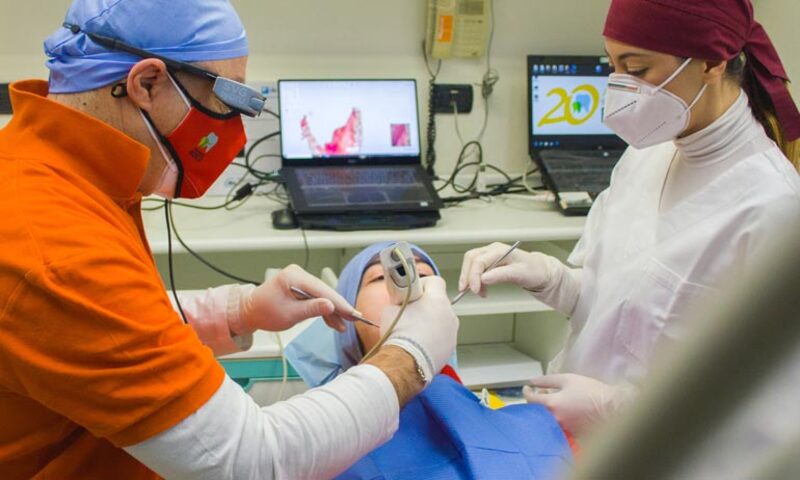I was scheduled for part two of a root canal. (Woo hoo!) I realized I needed a better strategy entering round two than I had going into round one. I needed to be prepared to manage more than two hours of needles, whirling machines, grinding teeth (my teeth!), and a gag reflex akin to drowning.
So I decided to pray like Polycarp, the 2nd century church leader and martyr.
A few lines tucked away in one of the most famous pieces of Christian literature, the eye-witness account of Polycarp’s martyrdom known as “The Martyrdom of Polycarp” (mid-2nd century A.D.) signal what kind of pray-er Polycarp was. Let me drop you into the middle of the document. Polycarp has just been informed that a large crowd of people who didn’t like Christians had been chanting for Polycarp to be arrested. Here are a few snippets from what happened next. The words in bold demonstrate something about Polycarp’s prayer life.
“Now the most admirable Polycarp was not dismayed when he first heard about it, but wanted to stay in the city. But the others convinced him to leave. So he went out to a little country house not far from the city and stayed there with a few friends. Night and day, he did nothing but pray for everyone, and for the churches around the world, as was his usual practice.
[As the soldiers got closer, Polycarp and his friends moved to another country house to hide out.]
When he heard that they [the soldiers] had arrived, he went downstairs and talked to them. Those who were present were amazed at his age and composure, and wondered at the insistence that such an old man be arrested. Right away he ordered food and drink be set before them at that hour — as much as they wanted — but he requested that they give him an hour to pray undisturbed. When they consented, he stood and prayed. He was so full of the grace of God that for two hours he was unable to stop speaking, to the amazement of those who heard. Many regretted that they had come after such a godly old man.
He finally finished his prayer, a prayer in which he remembered everyone he had ever met, whether small or great, well–known or unknown, as well as all those of the true church throughout the world. The time to depart had come, so they seated him on a donkey and brought him into the city, on the day of the great Sabbath.”
Polycarp’s life was at risk. All I had to face was a root canal. But I decided to follow Polycarp’s example anyway.
As the endodontist flashed the Novocaine needle in front of me, I began silently praying through every European country I could think of. One country at a time, I prayed: Great Britain, Germany, Poland, France, Italy, Czech Republic, Bulgaria, Russia, Greece … As the grinding and drilling commenced, I prayed my way across Asia: Turkey, Iran, Pakistan, India, Uzbekistan, Nepal, China, Vietnam, Japan … “Open wider … turn your head to the side … stay very stil l…” I mentally moved to Africa, and worked my way north-to-south, Morocco to Mozambique. “About another half hour,” the doctor intoned, so I started praying through the Americas, south-to-north, beginning with Chile and Argentina, and weaving my way up through Central America and Mexico, and out into the United States.
Two and a half hours later, I must have prayed for at least 150 countries, that is, pretty much every country I could think of. (I realized later that I forgot Canada, though I’m not quite sure why— sorry, Canadian friends!) Praying for every Jesus-follower, Christian church, and mission organization I could think of across the globe, and for every spiritual and physical need I had ever heard of, not only helped keep my mind off my fears, it renewed my spirit and left me conscious of God’s sustaining help during my root canal.
So how do you pray like Polycarp? You pray for anyone and everyone you know throughout the whole world and for the church of God worldwide, one church at a time — whether you know anyone in a particular place or not. And then you do it again. And again.
This post and other resources are available at Kindle Afresh: The Blog and Website of Kenneth Berding.
 Biola University
Biola University




